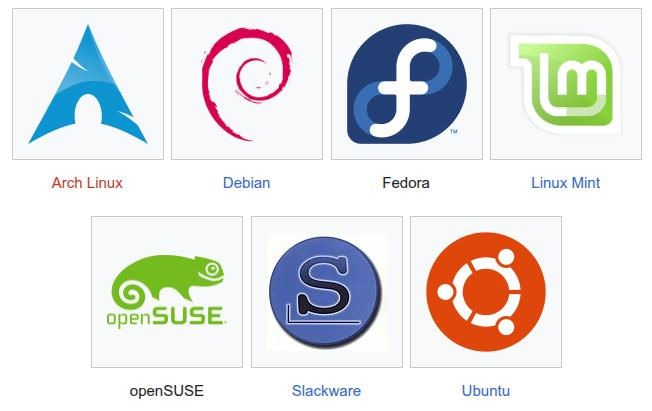AI Summarized Hacker News
Front-page articles summarized hourly.

Online ad tech is being repurposed for government surveillance. CBP, ICE, and other agencies have bought location data via the advertising ecosystem, using real-time bidding (RTB) and SDKs that track phones. RTB broadcasts bidstream data to thousands of buyers, often with GPS coordinates, device IDs, and app info, enabling warrantless location tracking. To protect yourself: disable advertising IDs, review and limit location permissions, and prefer approximate rather than precise locations. For change: ban precise location in bid requests, remove advertising IDs by default, and pass strong federal privacy laws to close the data-broker loophole.
HN Comments

Index and overview of open neuroimaging datasets for reconstructing visual perception from human fMRI data. Aimed at AI/ML researchers, it clarifies distinctions among decoding, identification, and true reconstruction (open-set inference) and lists criteria for reconstruction-ready datasets (train-test independence, stimulus diversity, visual field coverage, voxel size, fixation, repetitions/SNR, subject count, copyright, preprocessing). Presents key datasets (vim-1, BRAINS, Miyawaki, BOLD5000, Generic Object Decoding, Natural Scenes Dataset, THINGS-fMRI, cNeuromod-THINGS, vim-2, Doctor Who, cNeuroMod video) with specs and notes; discusses HRF delay and data split cautions; cites Seeliger (2026).
HN Comments

PageAgent is a GUI agent living in your webpage; the page is loading.
HN Comments

An AI-driven CI workflow was tricked by a crafted GitHub issue title, causing npm to install from an attacker repository and install OpenClaw on about 4,000 developers via [email protected]’s postinstall. The five-step chain—prompt injection, AI execution, cache poisoning, credential theft, and malicious publish—was dubbed Clinejection. Root causes included untrusted input in CI, missing provenance checks, and token leakage. Remediation cited: remove the problematic AI workflows, enable OIDC provenance for npm publishing, rotate credentials, and audits. The article argues for per-syscall checks to block such operations.
HN Comments

GitHub repo calmsacibis995/irix-657m-src contains the IRIX 6.5.7m source code. It has 3 commits and 1 contributor (Stefanos Stefanidis). Languages are mainly C (with Roff, C++, Assembly, Perl, Makefile, and others). The project has 58 stars and 15 forks, with no releases published yet.
HN Comments

Linux kernel maintainer Greg Kroah-Hartman has extended the end-of-life timelines for several LTS kernels after consulting with major users. Notably, 6.12 and 6.18 are now projected to end in 2028 (up from 2026/2027), while 5.10, 5.15, and 6.6 remain unchanged. The move aligns kernel support with real-world deployments and follows long lifecycle practices by distros like Red Hat, SUSE SLES 16, and Canonical Ubuntu; companies can also keep older kernels running via services such as TuxCare.
HN Comments
Wikimedia Status page for incident updates and maintenance, with alerts via email, Slack, webhook, and Atom/RSS feeds. Current incident: Wikis in read-only mode, identified and being fixed, with ongoing investigation as of Mar 5, 2026. The page also lists prior incidents (Feb–Mar 2026) of outages and degraded performance, with statuses from Investigating to Resolved. Includes system metrics and standard status indicators (Operational, Partial Outage, Major Outage, Maintenance).
HN Comments
BBC warns of permanent, irreversible trends requiring a major overhaul of funding and remit. Despite 94% of Britons using the BBC monthly, fewer than 80% of households pay the licence fee, as streaming blurs the rules. The licence model is seen as misaligned with modern viewing and risks a tipping point of non-payment. The BBC proposes a more sustainable funding model, including opening iPlayer to other UK public-service broadcasters, potentially hosting their content (with ads or subscriptions) to compete with Netflix/YouTube, and expanding BBC Sounds to third parties, with government talks to follow.
HN Comments

Palantir and Hello Patient are stocking offices with nicotine-pouch vending machines to boost productivity. Lucy and Sesh supply free pouches in Palantir’s DC office for adults over 21; the pouches deliver nicotine without smoke, using a cellulose wrapper rather than tobacco. Tech insiders frame this as part of Silicon Valley biohacking, but doctors warn nicotine carries long-term health risks and isn’t a harmless hack. Hello Patient founder also tried it but quit after developing dependence.
HN Comments

The post uses a humorous faux upgrade of the ls command to advocate a simple truth: good software knows its purpose and when to stop. Rather than chasing every feature, it should improve where meaningful. Drawing on 37Signals’ Getting Real, the author outlines constraints as advantages, ignoring unnecessary requests, shipping fast, focus on core interactions, saying no by default, and scratching one’s own itch. In an era of claims like AI-enabled tools, the piece argues that being a de facto standard and knowing the product vision matters more than maximal novelty.
HN Comments
Advocates a scalable network-server design: one thread per CPU core, each with its own epoll/kqueue. Major state transitions (accept, read) are handled by separate threads, with fds passed between workers. Spawn detached threads to match cores, set affinity, and initialize per-thread event queues. Increase FD limits and disable lingering. The accept loop registers new connections with a selected worker; use nonblocking I/O and a simple rotation to distribute load. Each fd is used by a single request per state, enabling per‑fd input buffers.
HN Comments
February 2026 Huginn report: Muninn found 254 phishing sites; Google Safe Browsing flagged only 41 (83.9% missed). Automatic Muninn scan caught 94%; deep scan caught 100% with zero false negatives (9 legitimate pages flagged). 58.7% hosted on trusted platforms (Weebly, Vercel, GitHub, Wix, IPFS, including Google domains). Top impersonations: Microsoft, Google, Netflix, Amazon, AT&T; 14 crypto/DeFi targets. Notable attacks: two-stage S3 credential harvest; Calendly impersonation; car-wrapping scam. Conclusion: Google tools have gaps; Muninn complements them—try it and submit findings to Yggdrasil.
HN Comments
It states that the request was blocked by security policies (HTTP 429 and 400) and instructs contacting support if this is an error.
HN Comments

Alexander Friedmann, a renowned prison-reform activist and journalist with a history as a prisoner, infiltrated Nashville's new Downtown Detention Center for months, posing as workers and using a dust mask, to plant concealed weapons and tools inside, a plan born from trauma and a lifelong preoccupation with prisons. He was exposed by security footage, arrested in January 2020, and later tried on charges including vandalism and firearms offenses. A jury convicted him for the jail plot, and he was sentenced to 40 years. The story intertwines his personal history with Nashville's jail reforms and Sheriff Hall's efforts.
HN Comments
WSJ 404 error page: cannot find the requested page, with instructions to check the URL and email support. The page also displays popular articles such as Iran’s underground missile cities vulnerability, a sensational Gemini breakup/death story, and other headlines about 401(k) withdrawals, growth in China, tariffs, and Middle East conflict.
HN Comments

Ruben Schade describes repurposing IKEA BILLY bookshelves as a modular rack for old PC motherboards (Baby AT, Micro ATX). He can slide boards out on cork mats without removing cards, store drives and cables on the shelf, and keep boards dust-free behind glass. The shallow vertical space could support multiple boards, offering a compact ‘rack’ for in-progress retro projects. He imagines connecting IO via KVM and adapters (e.g., RGBtoVGA, PS/2), possibly powering boards with PicoPSUs. He plans more shelving to organize and access old builds.
HN Comments
Could not summarize article.
HN Comments
OpenBSD/sgi chronicles two decades of SGI/MIPS support, from early pmax/ARC efforts and NetBSD cross-pollination to 64-bit MIPS ports across SGI gear (Indy, Indigo2, Octane, Origin, Fuel). It highlights key developers (Per Fogelström, Miod Vallat, Theo de Raadt), toolchain woes (gcc/binutils), ABI shifts (o32, n32, n64), and architectural hurdles (ARC/ARCS boot, IOC bridges, DMA, caches, interrupts). By 2009–2012, OpenBSD/sgi matured across IP27/IP30/IP32/IP35, but the project was eventually dropped in 2019; patches and knowledge persist in other ports.
HN Comments

ESA, Airbus Defence and Space, TNO and TESAT demonstrated a laser link between an aircraft and a geostationary satellite, using Airbus’ UltraAir terminal. In tests over Nimes, France, the system ran error-free at 2.6 Gbps for minutes, with data transferred to the Alphasat TDP‑1 36,000 km away. Laser comms offer higher speed, security, and less spectrum congestion than RF. The project, under ESA’s ScyLight/ARTES, aims to enable high‑speed internet on planes, ships and remote areas, and strengthen Europe’s secure connectivity.
HN Comments
Autorius pristato DIY „Vargšo žmogaus Polaroido“ fotoaparatą: Raspberry Pi Zero su kamera, mažas termalinis spausdintuvas ir powerbankas. Dėžė – 3D spausdinta su LED indikatoriais ir mygtukais. Nuotraukas fiksuoja mygtuko paspaudimu, o vaizdai apdorojami Python (PIL/OpenCV) – šviesos korekcijos, histogram equalization, gamma, CLAHE ir kontrasto tempimas – prieš spausdinimą. Ritininis popierius leidžia nuotrauką išspausdinti už mažiau nei 1 centą. Spausdintuvą galima prijungti per USB/Bluetooth; pateikiamas ir dalis kodo.
HN Comments
Made by Johno Whitaker using FastHTML








